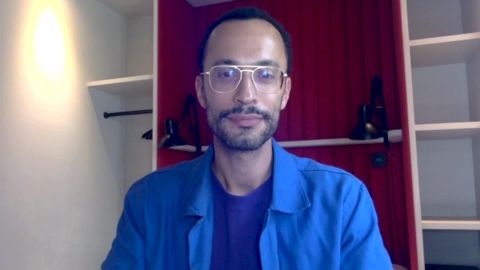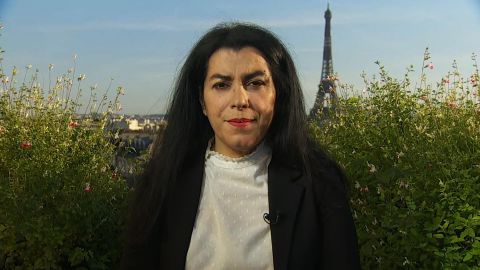Read Transcript EXPAND
CHRISTIANE AMANPOUR: I guess the first obvious question to you is, could you ever have imagined — maybe you did — that this film would hit right in the moment when science is front and center of our public debate right now.
MARJANE SATRAPI, DIRECTOR, “RADIOACTIVE”: No, not at all. And it is unfortunate that today in 2020, people, they don’t still — they still don’t trust science. I mean, if it is something that is factual, this is not subject of interpretation, it’s science. So, that is the only factual thing that we possess. So, we better trust it.
AMANPOUR: So, let me ask you, then, Marie Curie. What made you curious about doing a biopic on her? It wasn’t the first one, obviously. What were you looking for that was not told in the other depictions of her life?
SATRAPI: Yes. Basically, I was brought up, you know, by the idea that Marie Curie should be a role model for me because my parents wanted me to be an independent woman. So, she was like the role model I had to follow. So, I knew lots of things about her. But then when it came, you know, to make a film about Marie Curie, as you say, it has been filmed since 1943 about her and the story is really good to be said again if that is a new point of view. So, the good thing with the script of Jack Thorne was that not only was it about the life of Madame Curie, but it was also about her science, and while we’re talking about the science, it was also the aftermath of the science and the effect that science has — had in the worked for the best like the cure of cancer, and the worst would be the atom bomb and Chernobyl. So, we actually talk about all the subjects and it kind of made it like a complete story. So, it was very exciting to make this film that went beyond the biopic.
About This Episode EXPAND
Sen. Bernie Sanders explains why he thinks Joe Biden could be the most progressive president since Franklin D. Roosevelt. Persepolis creator Marjane Satrapi discusses her new film “Radioactive,” based on the life of Nobel Laureate Marie Curie. Author Thomas Chatterton Williams joins Walter Isaacson to discuss “cancel culture” and his book “Self-Portrait in Black and White,”
LEARN MORE


